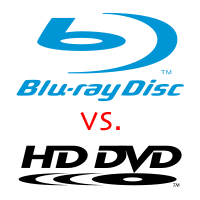
The video game console wars have simmered a bit since the holidays, so I thought it was time to compare each of them and see who's winning.
First, the basics. As you may have read in my previous post, Sony comes equipped with Blu-Ray drives and Microsoft equips the XBox 360 with HD-DVDs (for an extra price). As it stands right now, the Wii supports neither, though rumor has it it will also be packaged with an HD-DVD player soon.
When it comes to the tech specs, the Wii packs less punch than the 360 and PS3. The former's processing power is about 1/6 that of the other two. It also has less graphics power, less RAM, slower read times, less memory and lower digital video output. So why is the Wii competitive at all? Because of its controller.
The creators of the Wii designed a new way to play video games. Players can use the Wii Remote (thankfully they changed the name from the original Wiimote), the Nunchuk, the classic controller or the light zapper.
The other two spent more time beefing up their graphics and processing. The PS3 barely edges out the XBox 360 in categories such as CPU speed, memory and others.
Game selection then becomes important. Many are still being worked on, some still without release dates. Franchise games for all three (e.g. Mario for Nintendo, Final Fantasy for Sony or Halo for Microsoft) will also determine who buys a system.
And who is buying these systems? As of the middle of this month, here are the totals.
XBox 360: 4.5+ million units in the United States
PS3: 687,000+ units in the United States
Wii: 1.25+ million units in North America
Bear in mind, the XBox launched long before the other two, and they price differently. XBox 360 Premium is $400, Playstation 3 Premium is $600 and the Wii is about $450 (quantities are scarce).
My verdict: It all depends on you. Sorry to be so vague on this one, but if you're a graphics fan, the Wii isn't your system. If you're a casual gamer, then it might be. If you love Final Fantasy, the choice if obvious. Just don't make it lightly. You're dropping hundreds of dollars on a way to not do homework/do chores/spend time with your loving family.


